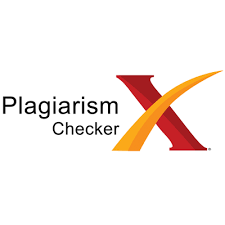IS MOBILE LEARNING A FEASIBLE TEACHING APPROACH IN THE LANGUAGE CLASSROOM?
Abstract
Integrating a mobile-learning (M-Learning) into a language classroom is an interesting topic to discuss; however, little is known about how much this technology-based language teaching is feasible for teachers to use in the language classrooms. This study aims at describing how M-learning has been implemented in English classrooms of non-English Department students. The questionnaire of the online survey was employed to collect data from the respondents. The students from English Department (Management) became the subjects of the study. This study found that most students in two different classes had positive perception towards the implementation of M-Learning in English class in terms of the curriculum (70%), learning enjoyment (85%), easy use (75%), assessment activities (85%), the materials (85%), teaching and learning activities (90%), and teacher’s feedback (80%). Despite the fact that students consider the prevailing M-Learning a useful and relevant teaching strategy to use, this teaching online is also subject to some weaknesses, such as: time consuming for giving feedback, copy right issues, cost of buying the devices and internet connection service.
Full Text:
PDFReferences
Carson, L. (2007) Relatedness and learner autonomy: A case study of an adult refugee learning English in
Ireland. Reflections on English Language Teaching, 6 (2), 21–38
El-Hussein, M. O. M., & Cronje, J. C. (2010). Defining mobile learning in the higher education landscape.
Educational Technology & Society, 13(3), 12-21.
Gui, H. (2016). Analysing and evaluating current mobile applications for learning English speaking. Birkbeck:
University of London
Jeng, Y.-L., Wu, T.-T., Huang, Y.-M., Tan, Q., & Yang, S. J. H. (2010). The add-on impact of mobile
applications in learning strategies: A Review Study. Educational Technology & Society, 13 (3), 3–11.
Kukulska-Hulme, A., & Shield, L. (2008). An overview of mobile assisted language learning: From content
delivery to supported collaboration and interaction. ReCALL, 20(3), 271-289.
Kukulska-Hulme, A., Norris, L & Donohue, J. (2015).Mobile pedagogy for English language teaching: a guide
for teachers. ELT Research Papers.London: British Council. Retrieved 6/10/2016 from
https://englishagenda.britishcouncil.org/sites/default/files/attachments/e485_mobile_pedagogy_for_e
lt_final_v2.pdf
Oz, H. (2015) An Investigation of pre-service English Teachers’ Perceptions of Mobile Assisted Language
Learning.English Language Teaching. 8 (2), 22-34
Sharples, M., Arnedillo-Sánchez, I., Milrad, M., &Vavoula, G. (2009). Mobile learning in Technology-
enhanced learning (233-249).
Springer Netherlands Peachey, N. (2010). Survey: Mobile learning for English language teachers. Retrieved
/10/2016 from http://technogogy.org.uk/mobile_survey.pdf
Reinders, H & White, C. (2016). 20 Year of autonomy and technology: how far have wel ome and where to
next? Language Learning & Technology 20 (2), 143-154
Reinders, H. (2010). Twenty Ideas for Using Mobile Phones in the Language Classroom. In English
Teaching Forum (Vol. 48, No. 3, p. 20).US Department of State. Bureau of Educational and Cultural Affairs, Office of English Language Programs, SA-5, 2200 C Street NW 4th Floor, Washington, DC
Ustunluoglu, E. (2009). Autonomy in language learning: do students take responsibility for their own
learning? IgitimdeKuramveUygulama.Journal of Theory and Practice in Education, 5(2), 148-169
Zao, Y. & Breslow, L. (2013).Literature Review on Hybrid/Blended Learning. Retrieved 5/10/2016 from
https://tll.mit.edu/sites/default/files/library/Blended_Learning_Lit_Reveiw.pdf
DOI: http://dx.doi.org/10.17977/um046v2i12018p14-20
Refbacks
- There are currently no refbacks.
Copyright (c) 2018 Journal of English Language, Literature, and Teaching (J-ELLiT)
Editorial and Administration Office:
This Journal is published and managed by Department of English, Faculty of Letters, Universitas Negeri Malang.
Jl. Semarang No. 5, Malang, Indonesia.
Phone. (0341) 551312.
Homepage: http://journal2.um.ac.id/index.php/jellit/index
email: jellit.journal@um.ac.id
P-ISSN: 2580-670X
E-ISSN: 2580-9687
This work is licensed under a Creative Commons Attribution 4.0 International License.
Cover designed by Rahmati P. Yaniafari









